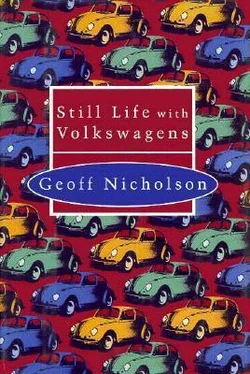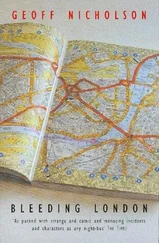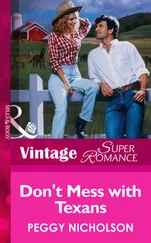“It’s more than that,” says Phelan. “It’s a work of art. And it’s even nicer when it’s on the house, eh Les?”
Les grunts.
“And like I said,” Phelan continues, “this could be the start of something very big. Isn’t that right, Butcher?”
“Yeah,” says Butcher.
“Butcher and I have plans,” Phelan says. “More than that, we have hopes, dreams. You can help make those dreams come true, Les.”
“Can I?”
“Yes. You see Butcher needs transport, and so do a few of his mates. So I’d like to place an order with you for eight more Beetles.”
“Eight,” Les repeats.
“Yes. You see Butcher and his pals like to think of themselves as tough guys. You can’t see them all piling in and out of the back of Volkswagens every time they do a job, so I’d like them to have one each.”
“I see,” says Les.
“Probably you don’t, actually. Today I’m ordering eight, but that’s only a start. A time will come when I’ll want dozens, scores, thousands. You’ll be able to cope with that, won’t you Les?”
Les wonders if the guy is joking, or if he’s just raving mad. Les looks at Renata, then at Butcher, to see if they’re in on the joke, but they both look perfectly serious.
“I have a lot of friends,” Phelan says. “There are a lot of people who think the way I do. One day there’ll be millions of them, and they’ll all want Beetles. What do you say Les? Do you want to play Ferdinand Porsche to my Adolf Hitler?”
Les does not particularly want to play anyone but himself, problematic though that sometimes is. Nevertheless, business is business, and he can see there could be some nice margins on supplying a fleet of restored Beetles.
“But we don’t want any old Beetles,” Phelan says. “These eight have got to be very special. That’s where Butcher comes in. Butcher knows what he wants. Tell him Butcher.”
Butcher is not good at verbal communication but this is clearly a special occasion and he’s trying very hard indeed.
“Yeah, I know what I want. I seen one like it once. It was all black, dead black, all of it, windows, wheels, the lot. And it was dead low and wide, and it looked absolutely wicked. It was being driven by some prat at the time, but it was a great set of wheels and that’s what I want.”
“You want Enlightenment,” says Fat Les.
“We all want that,” says Phelan. “But in the meantime we’ll settle for eight wicked-looking black Beetles. Okay?”
♦
It is morning. Barry wakes up. He has spent the night sleeping in Enlightenment. The back seat is formidably uncomfortable but he feels that a little physical discomfort, a little mortification of the flesh, must be good for the inner man, even if it leaves the outer man careworn and with back ache. It was dark when he parked here and after he’s sat up and cleared away a patch of condensation from the rear window, he finds that this spot was not quite as lonely or as bucolic as he had thought and hoped. The place is rural enough, being on the edge of a forest; however, in the light of day he sees he is rather close to what looks like a gypsy encampment. There’s a group of old vans and buses, the odd ambulance and some derelict-looking but inhabited caravans. Then suddenly the music starts. Barry is not entirely sure what this kind of music calls itself, but it is relentlessly rhythmic, hard-edged, and mechanical, and it is very loud. He thinks it would no doubt be great to dance to if you were out of your head on drugs, but as music to wake up to it’s a bit excessive.
Barry is not the complaining sort. He isn’t fool enough to go and ask them to turn it down. He knows that the greatest joy of being on the road is that if you don’t like your neighbours you can always move on. A certain sort of Zen traveller would argue that ultimately all places are one, but Barry doesn’t quite see things that way. He tries to shake the sleep frorri him, tries to pull himself together and scrambles into the front seat of Enlightenment. He is about to start the engine and drive off to a quieter spot when he sees a man coming towards the car carrying a large tin mug. The man looks formidable. His head is shaved at the sides and he has a long, black top knot tied up with what looks like electrical insulating tape. His age is hard to guess, although he perhaps looks old enough to know better. He has rings through his ears and nostrils, and since he is bare chested Barry sees that he has rings through his nipples too. There are tattoos all over his arms and hands and neck; some quite finely done, of dragons and Celtic symbols, others are crudely drawn names and initials.
Barry watches as this character approaches Enlightenment, unsure what he could want. However, despite his fearsome appearance, he looks friendly enough. He comes right up to the Volkswagen and taps on the window. Barry winds it down and the man proffers the tin mug which Barry now sees contains hot, strong tea.
“For me?” says Barry, although he has to shout to be heard over the music.
“Yeah, of course,” says the man.
“Well, thanks very much.”
Barry takes the mug. The tea inside is scaldingly hot and he has to move the mug from hand to hand so as not to burn his fingers. He is no great fan of hot, strong tea but he takes a drink and tries his best to smile appreciatively, at which point the man sticks a hand of friendship in through the open window and Barry shakes it as best he can while juggling the tin mug.
“The name’s Cliff, Planetary Cliff,” says the man. The voice, far from being savage or fearsome, has an educated, well-modulated, home counties ring to it. “That’s my bus over there, the double decker with the scenes from the tarot painted on it, the one that the music’s coming from. It’s like Summer Holiday only New Age, and this is a newer bus, for one man operation, with closing doors.”
“I see,” says Barry.
“And you are?”
Barry says, “Call me Ishmael.”
“All right, I will.”
He then falls silent so Barry sips the tea again.
“There’s plenty more where that came from,” says Planetary Cliff. “In fact we’ve just made breakfast. You want to come and have some?”
Barry is never at his best this early in the morning and he doesn’t particularly want to have breakfast with this stranger, but he knows the importance of not spurning hospitality, so he accepts.
“That’s very kind of you,” he says.
“It’s what we’re here for,” says Cliff. “We know how to look after our own.”
Barry gets out of Enlightenment and follows Planetary Cliff the short distance to the camp. He isn’t very happy about this instant easy identification of himself as one of Cliff’s ilk, but he sees no reason to make a big fuss about it. He soon finds himself sitting around a smoking camp fire as part of a group of New Age breakfast eaters. Names are exchanged and Barry finds it hard to believe that these people really go around with names like Rune and Akio and Windowpane, but he knows too well to argue or to judge. A lot of children and dogs flit hyperactively around the edge of the group. A small, long-haired child of indistinguishable sex pokes Barry in the back of the neck with an old windscreen wiper, and nobody, except Barry, tells him or her to stop. The food is not wonderful. It is a form of grey porridge and it leaves Barry thinking longingly about motorway service station breakfasts.
“God, I hate society,” says Planetary Cliff. “Don’t you?”
Barry isn’t sure whether the remark is addressed to him personally or to the air. In any case he says nothing and Cliff is soon speaking again.
“The thing is, I turn my back on society because society turns its back on me. I’m an outcast. I live on the margins. I’m poor, I’m hated by society, but what can you do?”
Читать дальше












